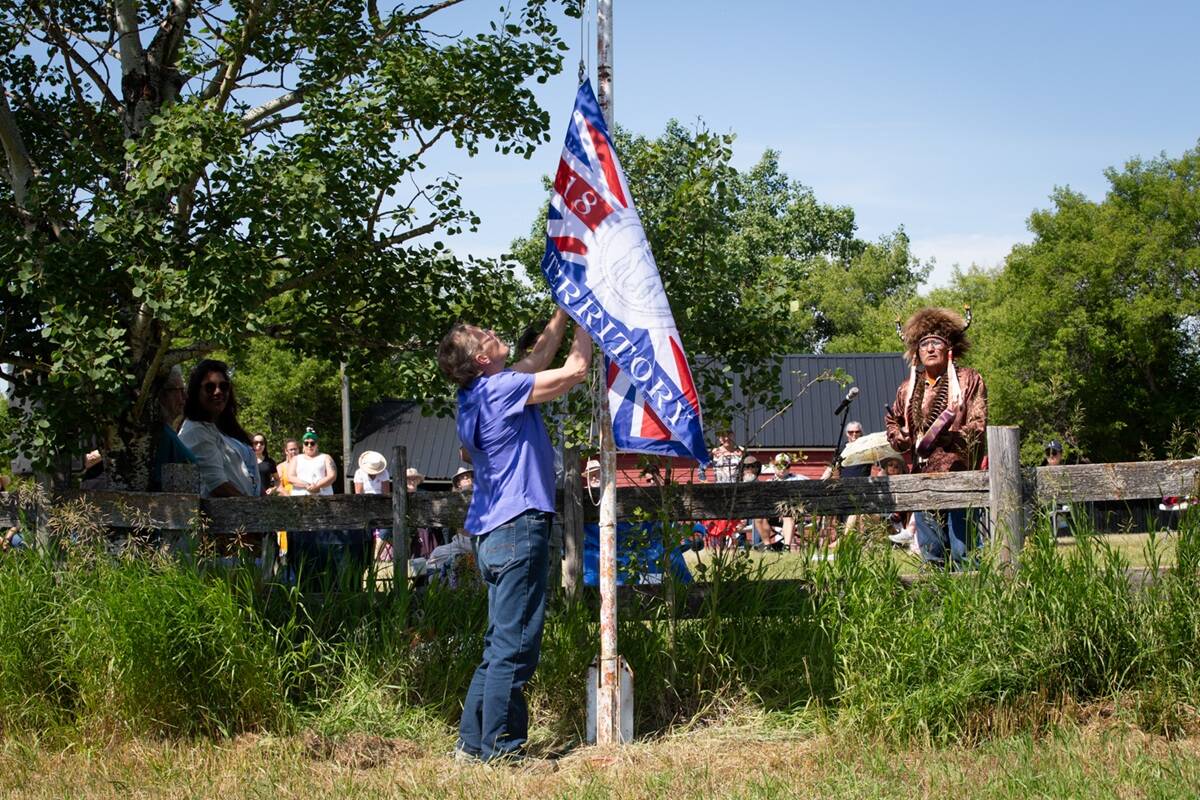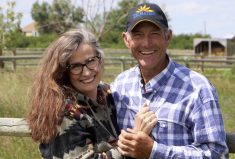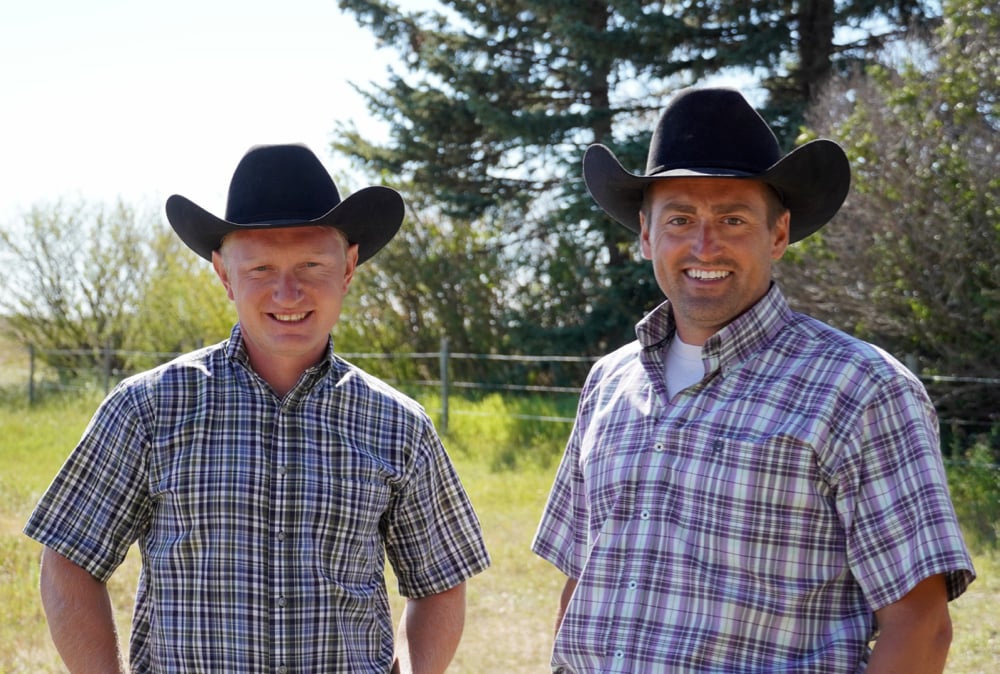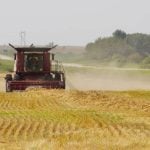Walking through the doors to Canadian Western Agribition, smells mingle in the hallways: mini donuts, smoked meat and those of a bovine nature, wafting out of the cattle barns.
In the barns, producers bustle. People are clipping and brushing cattle in chutes. In the corner at the bar, people walk towards their booths with Caesars or paralyzers in hand. An orange coat catches the eye — a key volunteer known as a barn boss hustling from person to person, making sure everything is running smoothly.
These barn bosses are just a few of the volunteers at cattle shows who keep the event running. However, post-COVID, it’s become harder and harder for beef shows to recruit volunteers.
Read Also

Treaty Land Sharing Network expands reach in Saskatchewan and Alberta
The Treaty Land Sharing Network, which connects land holders with First Nations and Metis people, has expanded since it began in 2018
Lloydminster Ag Ex
Gord King has been attending events such as the Stockade Round-Up at the Lloydminster Ag Exhibition since he was a little kid. He remembers showing the first heifer he ever bought himself at the Round-Up.
“My whole life I’ve grown up in this building,” King says.
Now, he volunteers on the board of the exhibition and chairs the Stockade Round-Up. He says the Stockade Round-Up is highly dependent on volunteers.
“To me, it’s just as important as sponsorship for shows. So if you don’t have the volunteers or sponsorship, you can’t make these shows go on.”
He says volunteers do a variety of things at the show, such as handing out banners, announcing, making sure all the cattle are ready to go into the ring and serving as ring man.
King says in the years following the pandemic, they’ve had more trouble finding volunteers. That’s led them to try new things.
“We do have a committee set up for just volunteers themselves — to come try to find somebody, to come and fill spots for us when needed for not only Stockade Round-Up but for the fair, for Agri-Visions, all of our main events.”
King speculates the lack of volunteers following COVID restrictions may be partly due to the emergency response benefits provided by the government. As well, the younger generation isn’t volunteering as much as their predecessors.
“I’ve seen all the community giving support and helping out and coming together for all that,” he says. “And that’s what’s driven me because, without them, I wouldn’t been able to do any of this stuff when I was a kid. But yeah, the younger generation, I don’t know what we have to do to get out to them.”
Agribition
Courtney MacDougall grew up on the Agribition grounds.
At three years old, she was already showing sheep at Agribition alongside her father. This wouldn’t be the only time she found inspiration from him — with her father volunteering at Agribition and active on the board of directors for around 20 years, MacDougall started volunteering herself at age 15.
Now, MacDougall has been on the board of directors for Agribition for 13 years and is in her third year chairing the volunteer committee.
“I was raised by two really well-rounded, amazing humans who taught us that if you wanted to influence something, you got involved. If you ever had an issue with something, get involved and be the solution. So I like to think that volunteering is a really great opportunity to give back to others.”
MacDougall says without the volunteers, Agribition wouldn’t run.
“Volunteers are the backbone of Agribition. When I put it into perspective, the amount of volunteers we engage for show week, if we were to pay 400 volunteers for an eight-hour shift just at minimum wage, it’s $42,000… so volunteers are used absolutely everywhere.”
Before the pandemic, she says they had around 400 volunteers a year, with 2019 having 444 volunteers.
After the show didn’t happen in 2020, they saw a decrease of 101 volunteers. Then in 2021, they had a total of 366 volunteers. In 2023, she says they had 375 volunteers.
While MacDougall is happy with how their volunteers corps is slowly coming back, she says they are working on actively recruiting volunteers. She worries about areas of the show where the volunteer populations are aging.
“I do feel that like, at the end of the day, you have to have the right volunteers,” MacDougall says. “And so it’s a fine tuning and continued growth process because you just have to influence and promote in the right open-minded humans that don’t know it all, but want to learn and experience it firsthand from those who have that wealth of knowledge.”
However, MacDougall also says she thinks Agribition is different than other beef shows in that they have had an easier time getting volunteers to return after COVID.
She says this is likely due to the culture surrounding Agribition. It’s the same for her as it is for so many other volunteers — their family members volunteered, so now they volunteer, as well.
“A lot of (volunteers) have that cultural part, have either started because they were kids that came through Agribition and they had those experiences, or their family and their generational farms have shown at Agribition,” MacDougall says.
“We have a good population of urban and rural and I just think that all of them, whether they’re urban or rural, still have those deep roots to the family farms, even though we’re generationally displaced from it… so it’s that ability to keep that connection.”
Barn bosses
Bryan Hadland was the president of Agribition in 2011 and 2012. Now, he helps organize a specific group of volunteers — the barn bosses.
At Agribition, there is a barn boss for every breed of cattle at the show, as well as for the alpacas, sheep, horses, etc. Their job is to make sure everything is running smoothly for the producers of their specific breed. While some barn bosses are paid by their breed associations, many are volunteers.
Hadland says the people who volunteer as barn bosses are from all different backgrounds, but many have exhibited at Agribition before. Some of the breeds pick their own barn bosses.
“If we have some holes, we can recruit them. But usually, it comes from a barn boss that’s already here because they know their people, and who’s good,” Hadland says.
Unlike other volunteers at Agribition, the barn bosses have not had trouble maintaining their volunteers post-COVID.
Hadland attributes this to the passion the barn bosses have for the industry and Agribition as a whole.
“People have passion for this show. Most of them have been involved in some capacity at some time. And it grows on you if you can get involved here.”
This is evident in people like Betty Wyatt, the Shorthorn barn boss. She’s often seen in her orange coat in the Shorthorn barn or sitting in the GMC Arena, watching the Shorthorn show as people lead their cattle in and out of the arena.
Wyatt has been volunteering as the barn boss for five years. Before that, Wyatt and her husband ranched near Kisbey, Sask., where they initially raised Black Angus cattle before switching over to Shorthorn.
After retiring from ranching, Wyatt took a job as a secretary for the Saskatchewan Shorthorn Association, which she did for 11 years. While she worked there, they asked her to be their barn boss at Agribition, as well.
“It’s really an honour to be part of such a big production and it’s very enjoyable,” Wyatt says. “We have a super group in our barn. So it’s a lot of fun.”
She says one of the reasons she believes the barn bosses stay for as long as they do is because of how they’re treated.
“At every meeting, we are congratulated and appreciated and we know that, and it’s sort of the way the whole world turns. If you didn’t have volunteers to make these things work, there wouldn’t be enough money in the world to pay staff to do something like this, I don’t think.”
2023 was Wyatt’s last year as the barn boss for the Shorthorns. She says the people are the most memorable part of her time as barn boss.
“I only see many of these people once a year and that’s a part that I will truly miss.”
Recruiting
Throughout the exhibition grounds of Lloydminster, you’ll find signs that ask “Before you complain… have you volunteered yet?”
It’s a reminder of how important volunteers are to the exhibition. King says they’re doing what they can to recruit volunteers and keep the show running smoothly for years to come, including setting up the new volunteer recruitment committee.
MacDougall says Agribition actively recruits volunteers all year long — not just during show week. She says they engage at events taking place throughout the year, such as Santa Claus parades, Canada Days, the Regina Folk Festival, etc.
“We’ve generated a lot of opportunity to continue to build a culture in the brand of Canadian Western Agribition outside of show week,” MacDougall says.
Walking through a cattle show such as Agribition, you’ll see lots of different people — families, school classes, and groups of young people walking together, laughing.
It’s these young people that Hadland, Wyatt and King want to see start volunteering.
“If you want to surround yourself with good people in life, which has always been something that is stressed, if you come here, you’re going to surround yourself with the best people that you can ever see,” Hadland says. “And if we don’t have that next group, that’s going to come to an end.”
Wyatt says once the younger generation gets a bit older, they should look back.
“Look back and see who helped you,” she says. “Where did it start for you? Someone had to help you, someone had to volunteer to get you going.”
MacDougall says volunteering is an opportunity for people to express their empathy for those who have helped them and to obtain a greater appreciation for the work people do.
“I also think that in volunteering, you get to be a part of something bigger than yourself. That’s really rewarding,” she says.
“Also like for myself now with two humans, I often think that I have those pairs of eyes watching, and I want them to understand the importance of giving back to others and that gift of compassion. And so that to me, I think is a running movement. I think sometimes that feeling can get displaced in different generations.”
King says that anyone who may want to volunteer but is hesitating should jump at the opportunity. “It’s the most fun you’ll ever have. And you’ll always feel better about yourself for doing it.”

















